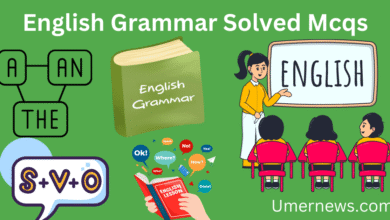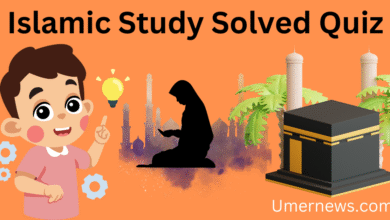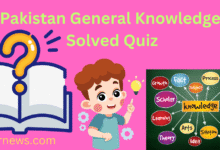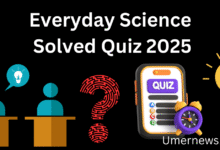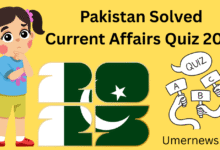History of English Literature Solved Mcqs
Contents
- 1 History of English Literature Solved Mcqs: Ace Your Exam
- 1.1 From Beowulf to Bloomsbury: A Literary Journey Through Time
- 1.1.1 Key Periods and Literary Giants
- 1.1.2 The Victorian and Modern Eras
- 1.1.3 Frequently Asked Questions (FAQ)
- 1.1.4 What is the most famous work of Old English literature?
- 1.1.5 Who is considered the most important playwright of the Elizabethan era?
- 1.1.6 What is the main characteristic of the Renaissance period in English literature?
- 1.1.7 How did the Industrial Revolution affect literature?
- 1.1.8 What is the difference between Romanticism and Victorian literature?
- 1.1.9 Who are some of the key poets of the Romantic period?
- 1.1.10 What is the significance of the stream-of-consciousness technique?
- 1.1.11 Conclusion
- 1.1 From Beowulf to Bloomsbury: A Literary Journey Through Time
History of English Literature Solved Mcqs

History of English Literature Solved Mcqs: Ace Your Exam
Master the History of English Literature with our solved MCQs. This post offers key questions and answers to help you prepare for exams and deepen your knowledge.
From Beowulf to Bloomsbury: A Literary Journey Through Time
Are you preparing for an exam on the rich and complex world of English literature? Feeling overwhelmed by the sheer volume of writers, movements, and key works? You’re not alone. The history of English literature is a vast subject, but breaking it down into manageable chunks can make all the difference. This is where History of English Literature Solved Mcqs comes in handy.
This post isn’t just a list of questions; it’s a study guide designed to test your knowledge and help you pinpoint the areas you need to focus on. We’ve compiled some of the most critical multiple-choice questions (MCQs) covering major periods and authors, from the Old English era to the modern age. Whether you’re a student, a teacher, or just a literature enthusiast, these solved MCQs are a perfect way to solidify your understanding and boost your confidence.
Key Periods and Literary Giants
To truly understand English literature, you must know the different eras and the figures who defined them. The following MCQs will test your knowledge of some of the most significant moments in literary history.
1. Who is often referred to as the “Father of English Poetry”?
A) William Shakespeare
B) John Milton
C) Geoffrey Chaucer
D) Edmund Spenser
Answer: C) Geoffrey Chaucer. He is credited with popularizing the use of Middle English in his works, most famously in The Canterbury Tales.
2. The Romantic period in English literature is generally dated from which major event?
A) The publication of Lyrical Ballads
B) The Industrial Revolution
C) The French Revolution
D) The death of Lord Byron
Answer: A) The publication of Lyrical Ballads (1798) by William Wordsworth and Samuel Taylor Coleridge is widely seen as the start of the Romantic movement.
3. Which of the following works is a prime example of a dramatic monologue?
A) “Ode to the West Wind”
B) “My Last Duchess”
C) “Kubla Khan”
D) “The Rime of the Ancient Mariner”
Answer: B) “My Last Duchess” by Robert Browning. This poem is a classic example of a dramatic monologue, where a single character speaks to a silent listener.
The Victorian and Modern Eras
The 19th and 20th centuries brought immense social, political, and technological changes, which profoundly influenced English literature. These questions delve into the literary landscape of these transformative periods.
1. Charles Dickens is known for his detailed critiques of Victorian society, particularly his focus on:
A) The plight of the working class
B) The corruption of the upper class
C) The effects of industrialization on the environment
D) All of the above
Answer: D) All of the above. Dickens’ novels, such as Oliver Twist and Hard Times, masterfully expose various social injustices and conditions of the Victorian era.
2. Which Irish novelist wrote Ulysses, a modernist novel that uses the stream-of-consciousness technique?
A) George Orwell
B) James Joyce
C) Virginia Woolf
D) T.S. Eliot
Answer: B) James Joyce. His 1922 novel Ulysses is considered one of the most important works of modernist literature.
3. What literary movement, prominent in the early 20th century, sought to break from traditional forms and reflect the fragmentation of modern life?
A) Romanticism
B) Realism
C) Modernism
D) Postmodernism
Answer: C) Modernism. This movement was a direct response to the upheaval of the early 20th century, characterized by experimentation and a departure from the norms of the past.
Frequently Asked Questions (FAQ)
What is the most famous work of Old English literature?
The most famous work of Old English literature is Beowulf. This epic poem, composed sometime between 700 and 1000 AD, is an heroic narrative that tells the story of the titular hero, a Geatish warrior who comes to the aid of the Danish king. It is a cornerstone of English literary history and a vital text for understanding the Anglo-Saxon period.
Who is considered the most important playwright of the Elizabethan era?
Without a doubt, the most important playwright of the Elizabethan era is William Shakespeare. His body of work, including tragedies like Hamlet and Macbeth and comedies like A Midsummer Night’s Dream, not only defined the era but also shaped the English language and world literature for centuries to come.
What is the main characteristic of the Renaissance period in English literature?
The Renaissance period, which began in the 16th century, is marked by a renewed interest in classical learning and humanism. This led to an explosion of creativity in poetry and drama. A key characteristic is the emphasis on human potential and individual expression, as seen in the works of writers like Christopher Marlowe and William Shakespeare.
How did the Industrial Revolution affect literature?
The Industrial Revolution had a profound impact on literature. Writers began to explore themes of social injustice, poverty, and the harsh realities of urban life. The rise of the novel as a popular form allowed authors like Charles Dickens to vividly depict the struggles of the working class and the moral dilemmas of an industrializing society.
What is the difference between Romanticism and Victorian literature?
Romanticism (late 18th to early 19th century) focused on emotion, nature, individualism, and imagination. Victorian literature (1837–1901), on the other hand, was more concerned with social realism, morality, and the complexities of industrial society. While Romantics looked inward and toward nature, Victorians looked at the world around them and tried to depict it accurately.
Who are some of the key poets of the Romantic period?
The Romantic period produced some of the most celebrated poets in the English language. Key figures include William Wordsworth, Samuel Taylor Coleridge, John Keats, Percy Bysshe Shelley, and Lord Byron. Their works often explored themes of nature, intense emotion, and the sublime, fundamentally shifting the direction of English poetry.
What is the significance of the stream-of-consciousness technique?
The stream-of-consciousness technique, popularized by modernists like James Joyce and Virginia Woolf, is a narrative style that attempts to mimic the flow of a character’s thoughts, feelings, and reactions. This technique allows for a deeper psychological exploration of characters and presents a less structured, more subjective view of reality, reflecting the complexities of the human mind.
Conclusion
Studying the History of English Literature Solved Mcqs is an excellent way to prepare for your exams and solidify your understanding of this fascinating subject. By regularly testing your knowledge, you can build a strong foundation and approach your studies with greater confidence. Remember, each period and author is a piece of a larger puzzle that tells the story of how our culture and language have evolved.
Did these MCQs help you? Let us know in the comments below what other topics you’d like us to cover!
